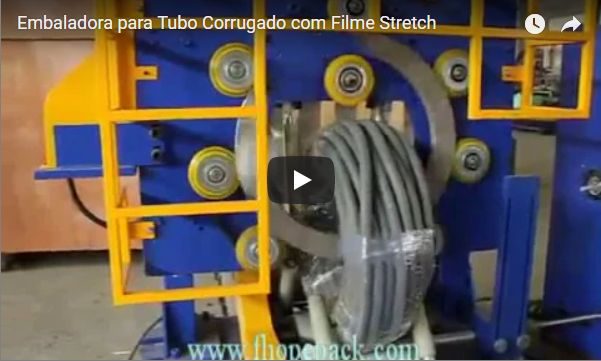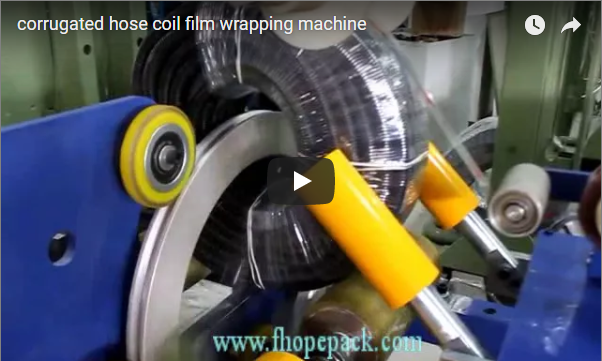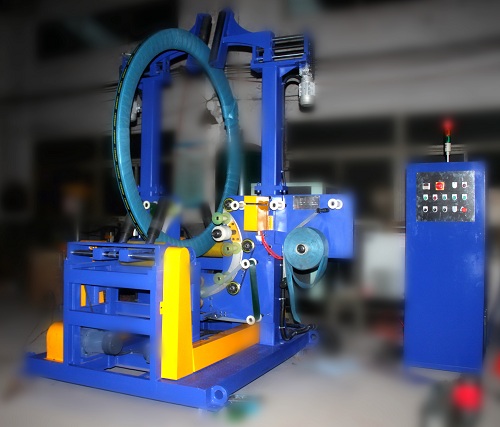Packing tyres efficiently is crucial for ensuring they arrive safely without damage. However, in high-speed production environments, it can be a challenge to find the right solution that balances speed, automation, and quality. Is it even possible to achieve this seamlessly?
In high-speed production environments, automatic tyre packing machines can streamline operations and reduce labor costs. These machines pack tyres quickly, reducing the risk of human error while maintaining the integrity of the tyres. Let's explore the best options for achieving efficient, high-speed tyre packing.
To understand how we can achieve automatic, high-speed tyre packing, it's essential to explore different machine options that can help improve packing efficiency. In this article, I will walk you through various machines, compare their capabilities, and help you choose the best one based on your production needs.
Overview of Common Packaging Machines for Tyre
Tyre packaging is not just about wrapping; it's about ensuring the tyre is securely packed for transit and storage. Different machines perform these functions in various ways, and understanding them is key to choosing the right one.
The most common packaging machines used for tyres include the coil wrapping machine, stretch wrappers, and fully automated packing lines. Each serves a unique purpose, and it’s important to evaluate their strengths and weaknesses.
Coil Wrapping Machines for Tyre
Coil wrapping machines are typically used for large, industrial packaging. These machines wrap tyres using stretch film or other materials, ensuring the tyre remains intact during transportation. The process is highly efficient, but these machines can be costly and may require a lot of space.
Stretch Wrapping Machines for Tyre
Stretch wrappers, while common in various industries, can be especially useful for tyres. They work by tightly wrapping stretch film around the tyre, ensuring it is compact and well-protected. These machines are designed for high-speed production and are often less expensive than other solutions. However, they may not be as automated as fully integrated packing lines.
Fully Automated Packing Machines for Tyre
Fully automated packing machines can handle the entire packing process—from loading the tyre to wrapping and sealing it. These systems are the most efficient for high-speed production environments, as they require minimal human intervention. The main drawback is their complexity and high initial investment cost.
Comparing Full-Size Coil Wrapping Machine, Stretch Wrapping, and Packing Machines for Tyre
When it comes to choosing the right machine for tyre packing, each type of machine comes with its pros and cons. It’s important to compare these machines based on factors such as cost, speed, and automation level.
Full-size coil wrapping machines, stretch wrapping machines, and fully automated packing systems all serve different purposes. Understanding how these machines compare can help you make the best choice for your production needs.
Full-Size Coil Wrapping Machines: The High-Capacity Solution
Coil wrapping machines are best suited for industries that handle large quantities of tyres and need a high-capacity solution. These machines are designed to wrap tyres tightly in film, making them ideal for transport and storage. They typically offer high-speed operations, but the initial investment cost can be quite high.
Stretch Wrapping Machines: Affordable and Efficient
Stretch wrapping machines offer an affordable, effective solution for packing tyres. These machines are fast and efficient, with some models capable of packing tyres in seconds. However, stretch wrapping machines are typically less automated and may require human intervention to load and unload the tyres. If your production volume is moderate, this could be a good option.
Fully Automated Packing Machines: The Future of Tyre Packaging
Fully automated packing machines are the most advanced solution for tyre packaging. These machines take over the entire packing process, eliminating the need for human labor. They are faster and more efficient than manual solutions, but they come with a higher upfront cost. For high-speed production environments, they offer the most seamless and reliable packing solution.
Choosing the Right Packaging Machine Based on Production Volume and Block Size
Selecting the right packaging machine depends on the volume of tyres you need to pack, as well as the size and shape of the tyres. It’s essential to find a machine that meets your production needs without compromising quality or speed.
When choosing the right tyre packaging machine, it’s crucial to consider production volume and the dimensions of the tyres. By understanding your needs, you can make the best choice for your business.
High Production Volume vs. Low Production Volume
If your factory deals with high production volumes, you may need to invest in a fully automated packing system. These systems handle large quantities of tyres efficiently, reducing bottlenecks and increasing overall throughput. For smaller production volumes, stretch wrapping or coil wrapping machines may be more cost-effective and sufficient.
Large Tyres vs. Small Tyres
The size of the tyres also plays a significant role in choosing the right packaging machine. Larger tyres may require specialized machines capable of handling their size and weight, while smaller tyres can often be packed using more standard solutions. Be sure to assess the specific requirements of your product when selecting a machine.
Space and Budget Considerations
Budget and space limitations are also important factors to consider. Fully automated systems are often the best option in terms of speed and automation but may require significant investment. On the other hand, smaller machines like stretch wrappers are more budget-friendly and take up less space.
Conclusion
Choosing the right machine for automatic tyre packing at high speed depends on various factors, such as production volume, tyre size, and budget. By understanding the different machines available, you can make a more informed decision that meets both your operational needs and your budget.






